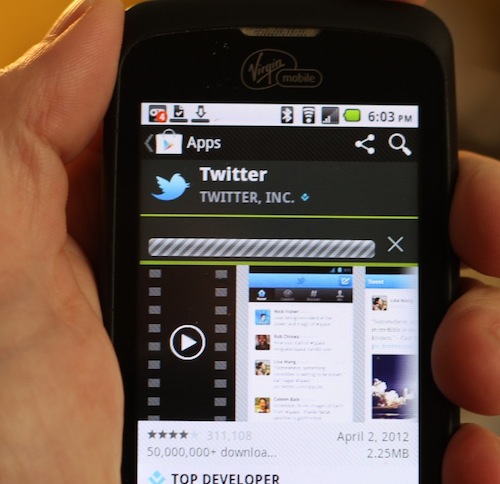You’re reading this post, most likely sent here from someone’s tweet or Facebook post. So I don’t have to tell you that we live in a new age of social sharing.
I would say that largely social media is a net plus. It has made the world smaller in good ways, allowing the best voices and content to rise, giving us unprecedented tools for connection and deeper friendship.
But like every new innovation in a fallen creation, there are pitfalls for Christians. So we should consider how our identity as regenerated members of Christ’s kingdom impacts our social media behavior.
Here are 5 potential traps:
1. Overconsumption
I’m writing this one first, because it’s the one I most struggle with.
Just today I had breakfast with a dear brother and had to be reminded by him (gently and with grace) to put my phone down and pay attention to our conversation. I wish I didn’t have to be reminded of this, but I do.
The lure of Twitter and Facebook and e-mail and texts is huge. We don’t want to miss one new update. Sometimes this is just about doing our jobs and staying on top of what is happening. But other times it reflects a darker desire to be in control, to be little gods of our own media universes. So we must guard against this and take seriously the rebukes from loved ones to, yes, put the phone down and be human.
2. No Gospel Filter
Just this week I saw a bright young man post something obnoxious and offensive to the public Facebook wall of a prominent Christian leader. The reaction among several people I know was, “What was he thinking?”
It’s so easy to just hit “send” without processing that post or tweet through a gospel filter. I’m thinking that James’s words to first-century Christians to be “quick to hear, slow to speak and slow to anger” have never been more prescient. I’m amazed at the things I see people post online. We forget that a future employer, a future fiancé, a future pastor or church leader is reading what we post online and forming opinions about us.
Just like it’s good wisdom to say to ourselves, “It’s not good to say everything you think”, it’s also good wisdom to say to ourselves, “It’s not good to post everything you think.” Or, as a friend of mine reminds me often, “Don’t be an idiot online.”
3. TMI
It’s fun to share funny anecdotes about our friends and family online. But there should be many things that we keep private. The public doesn’t need to know everything about you all the time. And it damages friendships to post humiliating or embarrassing things about loved ones online without their consent.
What’s more, we should be careful about discussing stuff online that embarrasses our children. I often read the Facebook posts of young people and wonder, “Why is he sharing that?” Maybe I’m getting old and sound like the cranky guy ordering people off my lawn, but I honestly don’t enjoy the play-by-play details of your weekend flu bug.
4. Grandstanding
There is a tendency, particularly for believers, to “grandstand” against other believers who are doing outrageous things, such as the pastor who burns books at Halloween or the group whose views you disagree with.
There’s nothing wrong with substantive, robust critique. Or even satire that makes a point. But I’ve noticed an increasing tendency for us to portray ourselves online as the do-gooder against all the bad guys.
We need prophetic voices, but voices shaped by humility and brokenness, not like the Pharisee in the temple who loudly praised God that he wasn’t as rotten as the despised tax collector. Even if you are the most hip, culturally sensitive, theologically orthodox Jesus-follower out there, you don’t have to keep reminding us. We get it.
5. Unnecessary arguments
It’s hard to know, sometimes, when a discussion on Twitter turns into an ugly argument, but when you’ve done it wrong, you almost always feel dirty afterward. Christians shouldn’t respond to every criticism and injustice, particularly those leveled by people who refuse to be reasonable.
Let’s face it: there are some voices online who live and die by outrage. And they hope that you will fall into their trap and allow them to use you as a foil in their larger agenda. Don’t fall for this. Don’t give them the satisfaction of having another scalp for their collection.
Be the high-minded, sober, levelheaded voice. Remember, as a child of God, you don’t have to sweat what some nasty person thinks about you. The God of the Universe sent his Son to the cross for you and, by Jesus’ life, death and resurrection, values you above the opinion of some shiftless basement blogger.








Oh the dangers of social media. I had facebook and several hundred “friends”. I enjoyed sharing the challenges we encountered while attempting to adopt a foster child and requesting specific prayers in that. However, as my high school class planned a 30 year reunion, a woman thought we had a relationship that we didn’t really have. When I told her I was unfriending her, she became quite belligerent and called me names. I finally agreed with my wife that I should drop FB and honestly it was hard for me. I have been FB free for nearly 2 years and I am a better person for it. Think seriously about the dangers that exist on social media.
I’m not saying everyone should do this, but this is something that has helped me… I’ve deleted Facebook and Twitter from my phone. That’s helped me from idly checking my feeds anytime I get the slightest bit bored. I don’t have a problem so much when out and about with friends, but when I’m home with my kids, that’s when the urge to compulsively check my feeds strikes.